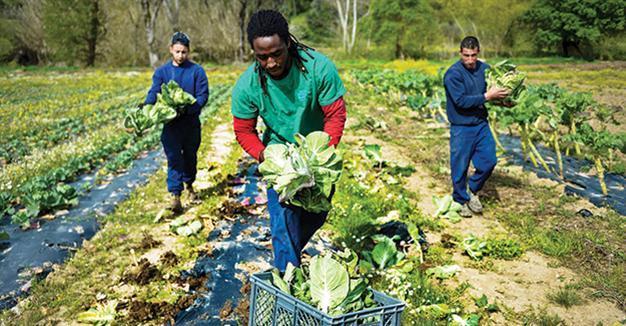Agriculture key to addressing conflict, climate change risks
ISTANBUL

Agriculture, forestry and fisheries are central to ensuring food security and protecting livelihoods and play a key role in changing the way we manage risks and crises including natural disasters stemming from climate change, FAO Director-General José Graziano da Silva said May 24 during a session at the World Humanitarian Summit.
“Food and nutrition security, sustainable development, addressing humanitarian crises, conflict resolution and peace building: these are different facets of the same challenge,” Graziano da Silva said.
The first condition to resolve conflicts is finding political solutions and this requires states and governments to uphold their responsibilities, Graziano da Silva said.
“To move beyond business as usual, we need to broaden the scope of interventions - completing and supporting, not replacing - humanitarian response,” he added. “We need to prioritize investments in prevention and resilience, precisely so that we can help reduce future humanitarian needs.”
The Director-General noted that for decades FAO has worked in, and across both the humanitarian and development spheres in order to save lives, protect and restore livelihoods, combat hunger, malnutrition and poverty while striving to build resilience and sustainable food systems.
Key commitments FAO made at the summit include scaling up the organization’s work on social protection and cash transfer programs by linking them to agriculture and rural development, and scaling up initiatives that link more closely food security and climate change adaptation measures.
FAO said it is also committed to working with key partners including national governments, the private sector, civil society and local communities in developing an integrated framework for protracted crises that supports greater alignment among humanitarian, development, peace and human rights actors.
In this context, Graziano da Silva today joined U.N. Secretary-General Ban Ki-moon and other top officials from six other U.N. institutions at the summit to sign the document “Commitment to Action: Transcending humanitarian-development divides - Changing People’s Lives: From Delivering Aid to Ending Need.”
 Agriculture, forestry and fisheries are central to ensuring food security and protecting livelihoods and play a key role in changing the way we manage risks and crises including natural disasters stemming from climate change, FAO Director-General José Graziano da Silva said May 24 during a session at the World Humanitarian Summit.
Agriculture, forestry and fisheries are central to ensuring food security and protecting livelihoods and play a key role in changing the way we manage risks and crises including natural disasters stemming from climate change, FAO Director-General José Graziano da Silva said May 24 during a session at the World Humanitarian Summit.